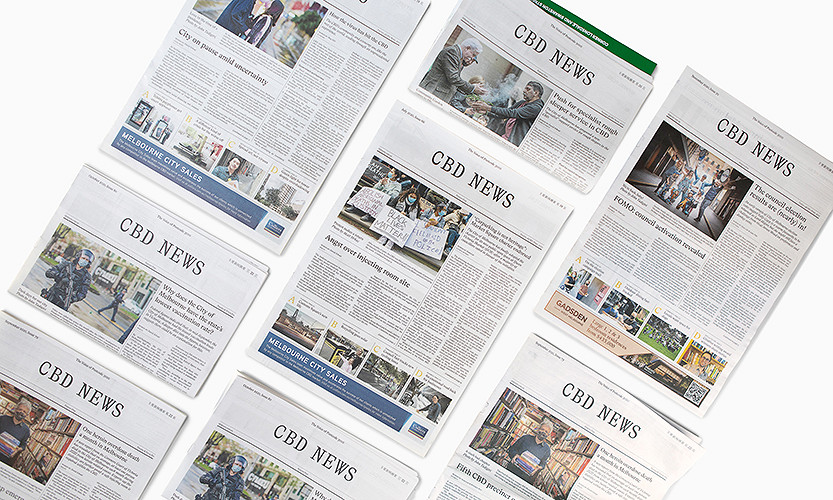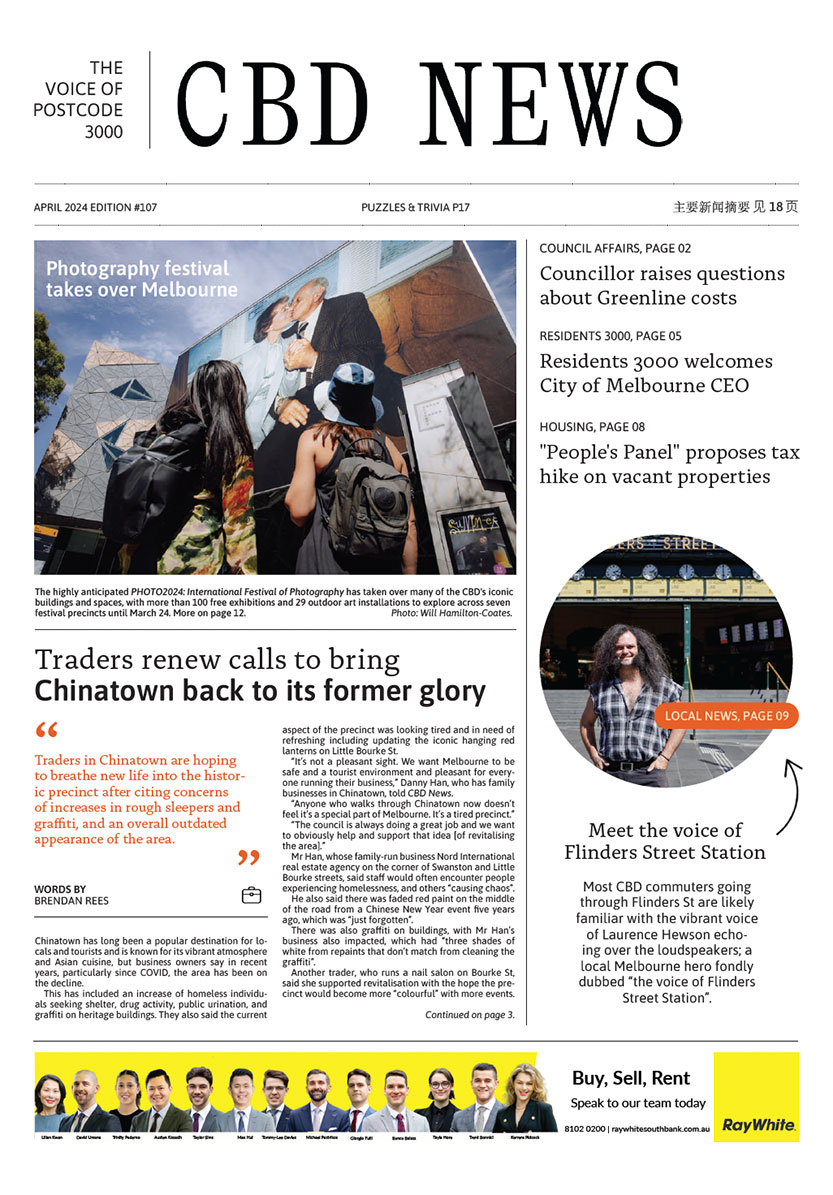State cladding group splits from VBA
By Barbara Francis & Rus Littleson
Cladding Safety Victoria (CSV) is splitting off from the Victorian Building Authority (VBA) to become the world’s first standalone agency
for combustible cladding rectification.
CSV has kindly provided We Live Here with a report card on its progress this year:
- 460 individual owners’ corporations (OC) have met with CSV.
- CSV has inspected and facilitated remediation plans for 310 buildings.
- CSV has helped 200 funded buildings to appoint independent project managers (IPMs). The manager’s role includes assisting OCs through the rectification process and to ensure that works run smoothly.
- 200 remediation works will be in progress by July 2021.
Absent from the report was data on the extent of the financial support being provided to buildings. We have followed this up with CSV and are awaiting an answer.
“A danger to life, safety or health”
CSV told We Live Here that “combustible cladding detected on the exterior of your build- ing doesn’t necessarily mean that your building is unsafe. However, once a fire starts combustible cladding may contribute to the spread of fire.” The CSV advice conflicts with what most of you are reading on your council building order, which uses legally mandated language that is much less comforting.
How are we supposed to manage the risk? CSV’s advice includes instructions to OCs not to use barbecues and not to smoke on balconies.
What about short-stays? The CSV has not provided any advice on how to deal with transient guests who are more likely to be ignorant of fire safety issues.
What happens with guests with mobility issues and other medical needs? When the fire brigade attends an alarm, one of the first actions is to check the list of residents with special needs. Short stays rarely if ever, keep the build- ing manager informed on occupancy. The short stay industry needs to fall into line on this issue and CSV could assist.
DHHS unresponsive
Both the Minister for Health and the Department of Health and Human Services (DHHS) are washing their hands of responsibility for the pandemic risks associated with short-stays.
We asked Minister for Health Martin Foley what his plans were for protecting residents from the health risks posed by the short-stay industry, given that we are overrun with short- stay platforms and Australia is the most penetrated market outside USA.
The galling answer from the minister’s office was risible:
“Your enquiry has been referred to the Ministerial Office, who are the appropriate people to answer these questions. Our office also recommends contacting Airbnb itself to enquire as to the health and safety measures it requires hosts to undertake.”
So, there we have it – Minister Foley’s beneficent blessing for self-regulation by behemoth multinationals accused of having no regard for local communities in any country. Australia now has the distinction of being the most penetrated market for short-term letting outside the USA.
Vision for 2021
So, when the pandemic is under control and we return to some semblance of normality – whatever that is – we will be emerging into a new landscape, one created by a microrganism.
How we live and work could be vastly differ- ent from what we have known in the past and we must use the opportunity presented to us to get it right.
All stakeholders need to have a say in how Melbourne should look in the future including, planners, developers, businesspeople, all levels of government, and all those that live, work, and visit the city.
Reset now
We need a reset now – we’ll never get a better opportunity.
The new norm for the Melbourne accommo- dation industry must include proper provision for students; those needing social housing, or medium-priced housing; residents-owner occupiers and long-term tenants; and visitors – business and holidaymakers.
The hotel industry must not be ignored in all this. The accommodation must be fit-for-pur- pose. We all must have a seat at the table.
Residential apartments and short stays
Residential Class 2 Buildings in which 83 per cent of the population of Melbourne currently live should be for residents only – except for individual owners renting out a room in their own apartment for short-stays when they are also present.
Commercial operators leasing many apartments for their own gain, not contributing to the wear and tear on the buildings they operate in should be banned forever.
Buildings that are segmented into hotel, apartments for short-term letting and apartments for permanent residents, are okay
provided they have separate management, entrances, car parks, etc. and must be tightly controlled – with severe penalties for breaches.
There needs to be more purpose-built apartment hotels to accommodate short stays.
In other words, there are ample options for accommodating visitors instead of greedy short-term operators being allowed to cram them into Residential Class 2 buildings never designed for the purpose; especially now that our buildings have become COVID-safe since the Stage 4 lockdown and should remain so.
Reclaim the title of “World’s most liveable city”
So, when the pandemic is under control and we start to move into a new landscape please can the city planners have a vision that will accommodate all those who live, work and play here so we once again reclaim the title of the most liveable city in the world?
For this to happen there must be a level play- ing field in which all stakeholders have a say.
Campaign donations
As a not-for-profit organisation, do- nations from individuals and buildings keep our campaigns going. To register as a supporter of We Live Here or to donate, please visit our website at welivehere.net. We Live Here does not accept donations from commercial tourism interests.

Backloading across borders with Transcorp – navigating interstate moves with ease




 Download the Latest Edition
Download the Latest Edition